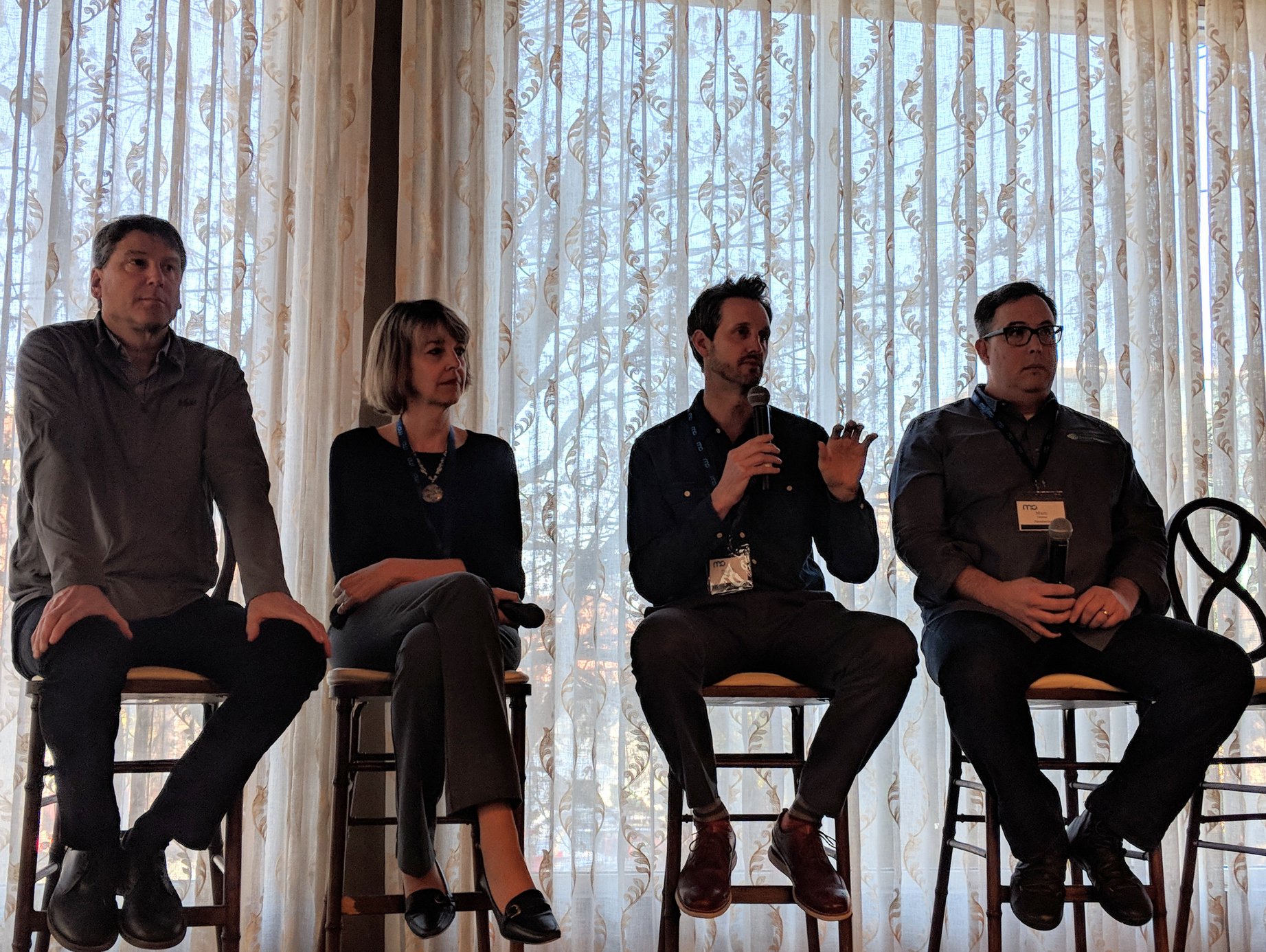MO Summit: Elevating Capitalism
Good business goes hand in hand with good ethics. It’s not always about what you sell–but why.
“I have turned down eight-figure investment propositions due to ethical conflicts,” said Blair Kellison, CEO of Traditional Medicinals, who also once took a 70% pay cut from Nestle to work at a mission-driven, all natural food company. “It all starts with values and who we are. It’s critical to have a shared vision with your investors.”

Last week at Momentum Summit, hundreds of CEOs and business leaders from all over the country gathered in downtown Asheville with the goal of elevating capitalism to its highest potential. The twelve planning committee members, including eight Asheville Chamber members, designed the two-day event to challenge the notion that businesses exist solely for profit.
“All of us exist in different communities around the country, and we exist as minorities in our respective fields, in terms of social consciousness,” said Kellison, whose company is based in Sebastopol, California. “It’s nice to be all together so we can learn from one another and narrow in on our strategy.”
“It’s easy to lean towards companies who simply advocate positive impact,” said Josh Dorfman, the Chamber’s director of entrepreneurship who helped plan the event. “It’s more challenging to connect with companies who fuse these concepts of positive impact with tangible growth and profit. MO Summit creates a forum for a unique conversation, rarely happening in other places.”

Seeing business as a vehicle for social change, the MO Summit team curated panel discussions on transparency, relationship building, raising capital, and promoting positive-impact.
“Take care of your people and grow them as humans so that holistically they can be better. Allow them to be themselves,” said David Gray of the Illinois-based GreenSeed Contract Packaging, in a panel about baking social impact into business. “Our talent, our people, is what’s going to drive our innovation and then fuel our growth.”
Another panel discussed the use of transparency as a competitive advantage. Matt O’Hayer, CEO and founder of Vital Farms shared that he frequently invites the public to watch his chickens wander around the pasture of his humane egg farm, and encouraged business leaders to follow suit in their own way.
“I don’t know how we’d survive without transparency,” said O’Hayer, who is based in Austin, Texas. “When you’re transparent, it helps people believe in what you’re doing. It’s a means to building trust among your crew members, and building trust throughout the entire company. We share good news and bad news all the time.”
In between panel discussions and creative workshops, guests mingled among hors d’oeuvres provided by locals such as No Evil Foods and French Broad Chocolate.
“I feel like I’m in someone’s living room,” said Dr. Lisa Fournier, a Lenoir-Rhyne business professor and member of the planning committee. “The atmosphere is warm and the conversations are so comfortable.”
Fournier, who has more than 25 years of experience cultivating community-based and emerging growth companies, encouraged leaders to mentor the next generation.
“Mentors have real experience in the topic and help people get to their next step. For me, it’s all about mentoring those who are creating the future with new innovations and dreaming of making a difference.”
For visitors to Asheville, it was also an opportunity to discover local happenings and opportunities.
“This is a great place for businesses to blossom,” said Rob Holden, a lending officer from New Resource Bank in San Francisco. “I’m amazed at the high-profile companies who have decided to move here. It’s great to hear stories, provide guidance, and plant seeds for people with so many different levels of experience and knowledge.”
Blair Kellison also sees the summit’s location as vital to its success.
“Asheville feels like a real community,” he said. “What makes this summit special is that Asheville was not just a location but a living, breathing part of the experience.”